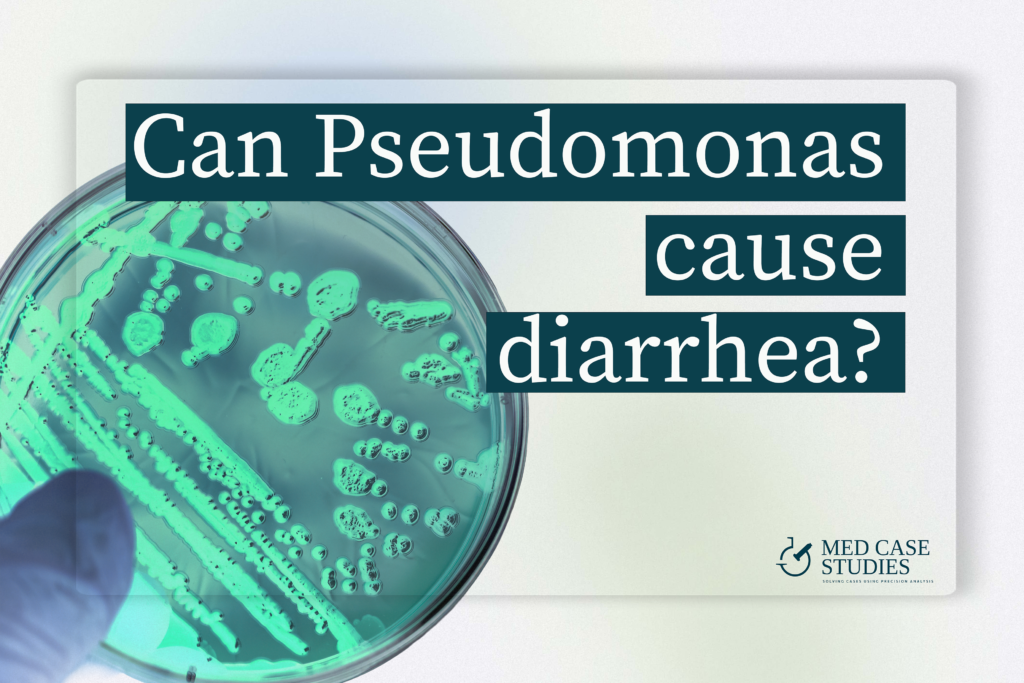Your gut is acidic … and should stay acidic
Alkaline diet does not make sense.... but alkalizing diet does. It's the same diet, but there's a reason it should be named alkalizing
None of these is alkaline

The gut is a vital organ that plays a crucial role in overall health, and the acidity level of the gut is an important factor in this process. The gut is home to a diverse community of bacteria, fungi, and viruses known as the microbiome, which supports overall health and contributes to the acidity of the gut through their metabolism. It is important to maintain the proper pH balance in the gut, as deviations from the normal range can affect digestion, absorption of nutrients, and the balance of the microbiome.
Alkaline vs alkalizing
It is not uncommon for people to confuse the terms “alkaline diet” and “alkalizing diet.” As a result, some people may adopt certain practices or techniques that are based on the incorrect belief that they are following an alkaline diet. One such practice that has gained some popularity is the consumption of baking soda as a means of alkalizing the body. However, there is little scientific evidence to support the use of baking soda for this purpose, and it could potentially harm a person’s health. Consuming large amounts of baking soda, especially on an ongoing basis, can disrupt the delicate balance of electrolytes in the body and lead to serious side effects, such as digestive issues and kidney damage. Additionally, it is important to note that many of the foods that are typically included in an “alkaline diet” are actually acidic in nature. It is their end effect inside the body, rather than their initial acidity, that is thought to contribute to an alkaline state. The correct term for a dietary plan that emphasizes foods that are thought to have an alkalizing effect on the body’s pH levels is “alkalizing diet.”
But, how acidic is our gut?
The intestine is not evenly acidic along its entire length. The acidity varies depending on the part we are talking about and the particular biochemical and physicochemical processes that take place there. The stomach is the most acidic part of the whole GI system, as gastric pH may sometimes be just 1. Of course, this acidic – infernal – environment is absolutely normal, as the stomach has multiple ways to protect itself from gastric acid, and thereby by symptoms like acid reflux and heartburn.
In the duodenum, the first part of the small intestine, the pH is typically around 6. This may not sound very acidic but this is because of the presence of bicarbonate, a compound produced by the pancreas that helps to neutralize the acidity of the chyme (a mixture of partially digested food and digestive juices) as it enters the intestine from the stomach.
As the chyme moves through the jejunum and ileum, the middle and final parts of the small intestine, the pH becomes more acidic, typically ranging from 4 to 6. This is due to the absorption of nutrients and the production of lactic acid by the microbiome.
In the colon, the acidity is reduced somewhat, typically ranging from 6 to 7. This is due to the presence of bacteria that produce short-chain fatty acids (SCFAs) like acetate, propionate, and butyrate, which are important for maintaining gut health. The pH in the ascending colon (the first part of the colon) is typically around 6.5 to 7, while the pH in the transverse colon (the middle part of the colon) is typically around 6. The pH in the descending colon (the final part of the colon) is typically around 6.5 to 7.
It is important to maintain the proper pH balance in the gut, as deviations from the normal range can affect digestion, enzyme activities, absorption of nutrients, and the balance of the microbiome.
And why the digestive system is mostly acidic?
Imagine the inside of your gut as a bustling city, with a diverse population of microorganisms living and working together. These microorganisms, also known as the microbiome, play a crucial role in maintaining the health and balance of the intestinal tissues. They contribute to the acidity of the gut by producing various types of acids through their metabolism. Butyrate and propionate are just a couple of examples of these acids. They are produced by the fermentation of dietary fiber and the metabolism of proteins and carbohydrates, respectively. These acids help to maintain the low pH of the gut, which is essential for the proper functioning of the digestive system. Think of the pH as the infrastructure of the city – without it, the city wouldn’t be able to function properly. The microbiome plays a vital role in keeping the infrastructure of the gut in good condition, ensuring that everything runs smoothly.
Some specific examples of bacterial genera that are found in the gut microbiome include Lactobacilli and Bifidobacteria. Lactobacilli are a type of bacteria that are commonly found in the human gut and are known for their ability to ferment sugars, such as lactose, into short-chain fatty acids (SCFAs). Bifidobacteria are another type of bacteria that are found in the gut microbiome. They are known for their ability to ferment complex sugars, such as those found in dietary fiber, into SCFAs like acetate, propionate, and butyrate.
Well, it's not the only one
While the gut is certainly an important organ that should be acidic, it is not the only one. The lungs and the vagina are also two other organs that should be acidic for optimal health. The acidity of the lungs helps to prevent infections and keep the respiratory system healthy. When you breathe in air, it passes through the nasal passages and into the lungs, where it is exchanged with carbon dioxide and oxygen. The acidic environment of the lungs helps to prevent the growth of harmful bacteria and other microorganisms that can cause infections. The acidity of the vagina is also important for maintaining healthy reproductive function and preventing infections. The vagina is naturally acidic, with a value of around 3.5 to 4.5 of the pH scale. This acidity helps to prevent the growth of harmful bacteria and other microorganisms that can cause infections. Overall, the acidity of these organs plays a crucial role in maintaining their health and function.
The acidity of the vagina, lungs, and gut may have evolved as a way to protect these environments from harmful bacteria and other microorganisms and to facilitate important physiological processes, such as digestion and respiration
What happens when pH balance gets out of order?
There are several gut diseases that can be favored by an elevated pH in the gut. The most important aspect of the theory behind this observation is that an alkaline pH in the gut may favor the development of certain diseases because it can alter the balance of the microbiome. The microbiome is a diverse community of microorganisms that lives in the gut and plays a crucial role in maintaining health. The balance of the microbiome is important for preventing the growth of harmful bacteria and other microorganisms that can cause infections and inflammation. An alkaline pH in the gut can disrupt the balance of the microbiome, allowing harmful bacteria and other microorganisms to thrive.
From an evolutionary perspective, it is thought that the human gut has evolved to maintain a mostly acidic pH in order to support the growth of beneficial bacteria and other microorganisms that are necessary for good health. The acidic environment of the gut is thought to have evolved as a way to protect the body from infections and other diseases. In contrast, an alkaline pH in the gut may not be optimal for the growth of beneficial bacteria and may instead favor the growth of harmful microorganisms that can cause disease.
Diseases that are favored by a constant increase in gut pH include
Candidiasis
Also known as a yeast infection, candidiasis is caused by an overgrowth of the Candida fungus. Candida thrives in an alkaline environment, so an alkaline pH in the gut can promote the growth of this fungus and increase the risk of infection.
Inflammatory bowel disease
IBD is a group of chronic disorders that cause inflammation in the digestive tract. An alkaline pH in the gut has been linked to an increased risk of IBD, as it can alter the balance of the microbiome and contribute to inflammation.
Small intestinal bacterial overgrowth
SIBO is a condition in which there is an excess of bacteria in the small intestine. It can cause symptoms like abdominal pain, bloating, and diarrhea. An alkaline pH in the gut has been linked to an increased risk of SIBO, as it can promote the growth of harmful bacteria in the small intestine.
Colon cancer
Colon cancer is a type of cancer that affects the large intestine (colon). An alkaline pH in the gut has been linked to an increased risk of colon cancer, as it can alter the balance of the microbiome and contribute to inflammation. An alkaline environment in the gut can also promote the growth of certain types of bacteria that have been associated with an increased risk of colon cancer.
Cancerous bacteria that thrive in alkaline environments
There are several types of bacteria that are more likely to thrive in alkaline environments. These bacteria may be more resistant to the acidic conditions of the gut and may be able to grow more easily in an alkaline environment. Unfortunately, some of these bacteria are cancerous and can contribute to the development of certain types of cancer.
One example of a cancerous bacterium that thrives in an alkaline environment is Porphyromonas gingivalis. This bacterium is commonly found in the mouth and has been linked to an increased risk of several types of cancer, including colon cancer and pancreatic cancer. Another example of a cancerous bacterium that thrives in an alkaline environment is Fusobacterium nucleatum. This bacterium is also found in the mouth and has been linked to an increased risk of colorectal cancer.
In addition to Porphyromonas gingivalis and Fusobacterium nucleatum, there are several other types of bacteria that are favored by an alkaline pH and may predispose to precancerous lesions.
More pathogenic bacteria
Bacteroides fragilis
B. fragilis is a type of bacteria that is commonly found in the human gut. It has been shown to produce a toxin called cytotoxin-associated gene A (CagA), which has been linked to an increased risk of colon cancer.
Clostridium difficile
C. difficile is a type of bacteria that can cause severe infections in the digestive tract. It thrives in an alkaline environment and has been linked to an increased risk of colon cancer.
Klebsiella pneumoniae
K. pneumoniae is a type of bacteria that can cause infections in the respiratory tract and the urinary tract. It has been linked to an increased risk of colon cancer and may be favored by an alkaline pH in the gut
But what causes reduced acidity of the GI tract?
There are a few different things that can cause the gut to have reduced acid levels, which means that the pH balance in the gut is on the higher end of the scale. This can have an impact on various aspects of our health, so it’s important to understand the factors that can contribute to an alkaline gut.
While proton pump inhibitors (PPIs), which are commonly used to suppress hydrochloric acid production, have an impact on the pH only of the stomach and proximal small intestine, they have been linked to profound changes in the microbial composition of the small intestine. PPI use has been linked to an increase in the quantity and diversity of bacteria in the stomach and proximal small intestine, a reduction in pepsin activity as well as an increased risk of small intestinal bacterial overgrowth (SIBO). SIBO caused by lowering stomach acid can lead to symptoms such as gas and bloating, iron and vitamin B12 deficiency, and fat malabsorption
One of these factors is a surgical procedure called a cholecystectomy, which involves the removal of the gallbladder. The gallbladder is an organ that stores bile, which helps with the digestion of fats. After a cholecystectomy, the liver will secrete bile directly into the intestines instead of storing in the gallbladder, and this can sometimes lead to an increase in pH level in the gut.
Another factor that can contribute to an alkaline gut is diet. If someone has a diet that is high in processed or refined foods and doesn’t get enough fruits and vegetables, this can lead to an imbalance in the gut microbiome and an increase in alkalinity. On the other hand, a diet that is rich in fruits and vegetables, which are high in fiber and other nutrients, can help to maintain a healthy balance in the gut.
Finally, some people may try out dubious techniques like drinking baking soda in an attempt to alkalinize their gut, but this isn’t a safe or effective way to do so and can actually cause harm. It’s important to keep our blood alkaline, but drinking baking soda acts mostly in your gut.
A few words on cholecystectomy and intestinal acidity
The gallbladder’s main function is to store bile, a digestive juice produced by the liver that helps to break down fats. In some cases, the gallbladder can become diseased or damaged, and it may need to be removed in order to prevent further complications.
While a cholecystectomy can be life-saving, it does have some consequences that you should be aware of. One of these is the constant flow of bile into the lumen, or the innermost part of the intestine. Normally, the bile is stored in the gallbladder and released into the lumen as needed, but after a cholecystectomy, the bile flows directly into the lumen all the time. This can lead to a constant alkalinization of the gut, as the bile has a naturally alkaline pH.
This constant flow of bile can also have an impact on the microbiome. The pH of the gut plays a significant role in the health of the microbiome, and an alkaline pH can alter the balance of good and bad bacteria in the gut. This can lead to a range of different health issues, including digestive problems, nutrient deficiencies, and even changes in the immune system
Tips for keeping the gut (and the microbiome) acidic
Eat slowly and chew your food thoroughly
Eating fast can cause gut alkalinization due to the increased production of gas and bicarbonate as a result of swallowing air while eating quickly.
Avoid junk food
These foods cause an imbalance in the gut microbiome and an increase in alkalinity. Processed and refined foods are often low in fiber and nutrients and can contribute to digestive issues like constipation, which can increase the pH of the gut.
Don't drink baking soda
Drinking baking soda may bring relief from certain symptoms, but in the long run, it leads to significant alterations of the intestinal flora, which in some cases are irreversible.
Drink plenty of water
Staying hydrated is important for overall health, and it can also help to maintain a healthy pH balance in the gut. Water helps to flush out toxins and waste products from the body, which can help to prevent constipation and maintain a healthy pH balance in the gut.
Get enough fiber
Fiber is an important nutrient that helps to promote the growth of good bacteria in the gut and can help to maintain a healthy pH balance. Soluble fiber, in particular, is fermented by the good bacteria in the gut, which helps to produce short-chain fatty acids that can help to maintain a healthy pH balance.
Avoid excess caffeine
Caffeine directly increases the production of bile acids and may also can irritate the digestive system and contribute to digestive issues like constipation, which can increase the pH of the gut.
Avoid unessecary medicines
Taking unnecessary proton pump inhibitors (PPIs) causes proximal small intestinal alkalinization as these medications are designed to reduce hydrochloric acid production, leading to a more alkaline pH.
Eat when you are supposed to eat
Eating late at night may lead to gut alkalinization because the body's production of hydrochloric acid, which helps to maintain an acidic pH in the stomach, tends to be lower at night.
Avoid excess amounts of fat
Eating excess amounts of fat can lead to gut alkalinization due to the production of bicarbonate, which helps to neutralize the acid produced when breaking down fat.
Maintain a healthy weight
Obese people produce more bile acids, through liver biosynthesis activation.
Conclusion

With a background in Chemistry and Biochemistry from the National and Kapodistrian University of Athens, Theodoros brings a wealth of knowledge in functional medicine and advanced treatments to his role. He possesses exceptional skills in analysis, pattern recognition, diagnostic translation, and storytelling. He is also FMU certified in Functional Medicine and has received training in advanced treatments from the Saisei Mirai Clinic in Japan.


